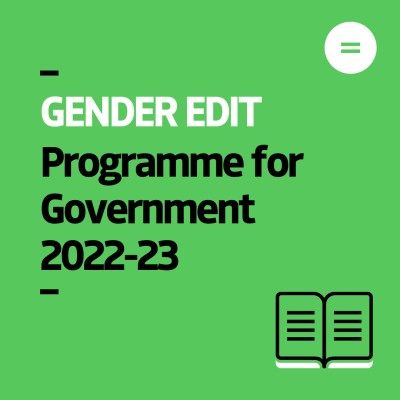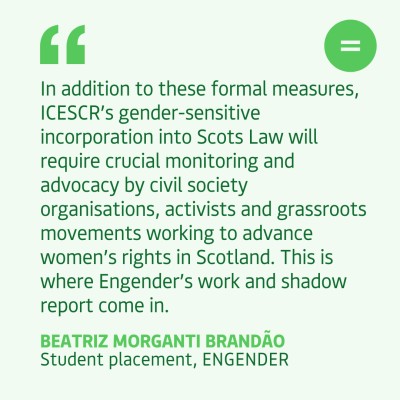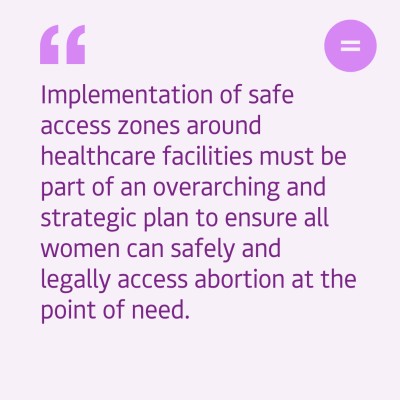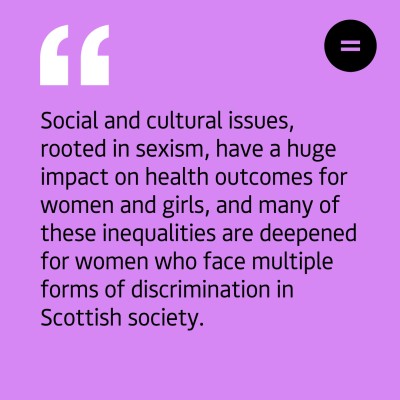Engender blog
All of Engender’s latest news. Reports, reviews, books, articles, and information from across Scotland’s women’s sector.
We would love to hear from other feminists around Scotland. Check out our guidelines for more information on how you can blog for us.
What does the Programme for Government mean for women's equality?

With everything else happening at the moment, you might be forgiven if the Programme for Government has slipped your mind. But as the main document which sets out the actions the Scottish Government will take, and the legislative programme for the next parliamentary year, it’s worth paying attention to.
This year’s programme for Government looks a little different than usual, as it has been cut from around 160 pages to just 38 by Ministers. This is in order to focus on the cost of living crisis, which as we all know is highly gendered and is set to have a huge impact both on women as individuals, and on women’s equality in Scotland as a whole.
Engender’s shadow report to CESCR: a key tool for promoting a gender-sensitive incorporation of ICESCR and improving women’s lives in Scotland
For many years women's equality advocates have been campaigning for the incorporation of CEDAW into Scots Law, but that isn't the only UN Convention which is key for the protection of women's equality and rights. This final blog from student Beatriz Morganti Brandão sums up her work to explore how the International Covenant on Economic, Social and Cultural Rights can be used to protect women in Scotland.

For my final post, I want to share the main findings from the research report I prepared as part of my placement with Engender. Broadly speaking, the report aims to support Engender’s mission of enabling women’s rights in Scotland. Specifically, given the Scottish Government’s recent commitment to incorporate the International Covenant on Economic, Social and Cultural Rights (ICESCR or the Covenant) into Scots Law, the report focused on preparing a draft of Engender’s shadow report for the upcoming review by the UN Committee on Economic, Social and Cultural Rights (CESCR) of the UK Government’s seventh periodic report on measures taken to implement ICESCR, which includes Scotland-specific information. The idea is that, through this shadow report, Engender attracts international scrutiny over the economic, social and cultural rights-situation for women in Scotland, and influences a gender-sensitive incorporation of ICESCR that actually improves women’s lives in the country.
Safe access to abortion services in Scotland

Engender recently submitted a response to the consultation on the proposed Abortion Services (Safe Access Zones) (Scotland) Bill. We’ve given a brief rundown of key points in this blog. You can access the full submission here, which covers the specific questions raised in the consultation around implementation of safe access zones locally and nationally, the size of potential safe access zones, the effect of current protests on women and staff, as well as the impact on human rights and other measures needed to improve abortion services in Scotland.
Everyone deserves to access reproductive healthcare free from abuse and harassment. Unfortunately, today in Scotland we still see women, and others accessing pregnancy and abortion services, targeted by those who do not believe in bodily autonomy or our right to choose. Following recent activism from organisations and campaigns including Back Off Scotland and others, Scotland is now making progress towards establishing safe access zones (also known as ‘buffer zones’) to enable people to access services in safety.
Exploring legislation on buffer zones in Northern Ireland
-400.png)
We're pleased to be working with student Beatriz Morganti Brandão to research how the International Covenant on Economic, Social and Cultural Rights can be used to protect women in Scotland. In this blog post, she explores the upcoming UK Supreme Court decision on buffer zones in Northern Ireland and how it could impact on women’s rights in Scotland.
A hot topic in Scotland today is the regulation of ‘buffer zones’ (protest-free areas) outside abortion clinics. These zones aim to protect women seeking and providing abortion services from escalating harassment and intimidation by anti-choice protestors. Gillian Mackay MSP has recently launched a consultation on a project to legislate on buffer zones around clinics in Scotland. The consultation is open until 11th August and we encourage all those wishing to improve women’s rights in Scotland to contribute. You can fill in the consultation online here.
Gender inequality in sickness and in health

Engender recently produced a briefing for the Scottish Parliament's Health, Social Care and Sport Committee about women's health inequalities. You can access the full briefing here, where we talk about the need for good quality data (of course!), the way that other structural forms of oppression impact on women's health and wellbeing, and provide recommendations to close the health gap. This blog focuses on the role that gender plays in women's health inequalities.
Systemic gender inequality has an enormous impact on health. Although women’s life expectancy exceeds that of men, women spend longer living with disability and ill health, and more women than men in Scotland live with a long-term health condition. Health issues that disproportionately affect women, or affect women differently to men, have historically lacked funding and professional focus, meaning that women’s health needs are not equally prioritised and understood across health services and more broadly.
Downloads
 Engender Briefing: Pension Credit Entitlement Changes
From 15 May 2019, new changes will be introduced which will require couples where one partner has reached state pension age and one has not (‘mixed age couples’) to claim universal credit (UC) instead of Pension Credit.
Engender Briefing: Pension Credit Entitlement Changes
From 15 May 2019, new changes will be introduced which will require couples where one partner has reached state pension age and one has not (‘mixed age couples’) to claim universal credit (UC) instead of Pension Credit.
 Engender Parliamentary Briefing: Condemnation of Misogyny, Racism, Harassment and Sexism
Engender welcomes this Scottish Parliament Debate on Condemnation of Misogyny, Racism, Harassment and Sexism and the opportunity to raise awareness of the ways in which women in Scotland’s inequality contributes to gender-based violence.
Engender Parliamentary Briefing: Condemnation of Misogyny, Racism, Harassment and Sexism
Engender welcomes this Scottish Parliament Debate on Condemnation of Misogyny, Racism, Harassment and Sexism and the opportunity to raise awareness of the ways in which women in Scotland’s inequality contributes to gender-based violence.
 Gender Matters in Social Security: Individual Payments of Universal Credit
A paper calling on the Scottish Government to automatically split payments of Universal Credit between couples, once this power is devolved to the Scottish Parliament.
Gender Matters in Social Security: Individual Payments of Universal Credit
A paper calling on the Scottish Government to automatically split payments of Universal Credit between couples, once this power is devolved to the Scottish Parliament.
 Gender Matters Manifesto: Twenty for 2016
This manifesto sets out measures that, with political will, can be taken over the next parliamentary term in pursuit of these goals.
Gender Matters Manifesto: Twenty for 2016
This manifesto sets out measures that, with political will, can be taken over the next parliamentary term in pursuit of these goals.
 Scottish NGO Briefing for UN Special Rapporteur on Violence Against Women
Joint briefing paper for the UN Rapporteur on Violence Against Women.
Scottish NGO Briefing for UN Special Rapporteur on Violence Against Women
Joint briefing paper for the UN Rapporteur on Violence Against Women.

Newsletter
Sign up to receive our newsletter here:
Sign up to our mailing list
Receive key feminist updates direct to your inbox: